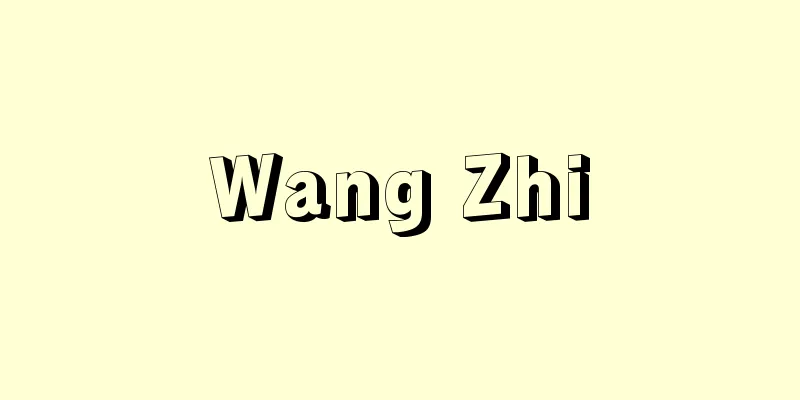Wang Zhi

|
A Chinese Ming Dynasty maritime merchant and leader of the Japanese pirates. He was from She County, Anhui Province. His real name was Tei and his pen name was Wufeng. Under the Ming Dynasty's maritime ban policy, he broke the national ban and stowed away overseas with his fellow townsman Xu Weixue. In June 1545, under the command of his fellow townsman Xu Dong and others, he accompanied the Japanese envoy monk Shouguang and others on their return to Japan. He lured Hakata maritime merchant Wa Sukezaimon and others to the port of Shuangyu in Zhejiang Province, where he engaged in international smuggling with Chinese, Portuguese, and South Asians. In 1548, Zhejiang Governor Zhu Yan (1492-1549) carried out a maritime purge that destroyed the port of Shuangyu. Wang Zhi managed to escape the disaster, and with his surviving subordinates and fleets, he eventually rose to become a leading figure on the seas. He established his base in Hirado and Goto in Japan, and used the port of Lie in the Zhoushan Archipelago as a forward base for smuggling. He called himself King Hui and commanded the Wa people on 36 islands, and his power reverberated across the seas. During the Great Japanese Pirates of the Jiajing Era in the 1550s, he was considered their greatest leader. Under the pretext of "public permission for mutual trade" by Zhejiang Governor Hu Zongxian, he surrendered to his army in October 1557, and was executed in December two years later. [Shigeo Sakuma] [Reference] | | | |Source: Shogakukan Encyclopedia Nipponica About Encyclopedia Nipponica Information | Legend |
|
中国、明(みん)代の海商で倭寇(わこう)の頭目。安徽(あんき)省歙(きゅう)県の出身。本名は鋥(てい)、号は五峰。明朝の海禁政策下に、彼は同郷の徐惟学(じょいがく)と国禁を犯して海外に密航した。同郷の先輩許棟(きょとう)らの配下に、1545年6月、日本貢使僧寿光らの帰国に随行して日本に来航し、博多(はかた)の海商倭助才門(わのすけざいもん)らを浙江(せっこう)省の双嶼(そうしょ)港に誘い、中国人、ポルトガル人、南洋人らと国際的密貿易を行った。1548年浙江巡撫(じゅんぶ)朱紈(しゅがん)(1492―1549)の海上粛正で双嶼港は壊滅し、その難を逃れた王直は生き残った部衆と船団を収容して、やがて海上の巨頭にのし上がった。彼は本拠を日本の平戸、五島に置き、舟山列島の烈港などを密貿易の前進基地とし、自らを徽王(きおう)と号し、36島の倭人を指揮して、その勢力は海上に鳴り響いた。1550年代の嘉靖(かせい)大倭寇期にはその最大の頭目とされた。浙直総督胡宗憲(こそうけん)の「互市(ごし)公許」の口実にのせられて1557年10月その軍門に降伏し、2年後の12月処刑された。 [佐久間重男] [参照項目] | | | |出典 小学館 日本大百科全書(ニッポニカ)日本大百科全書(ニッポニカ)について 情報 | 凡例 |
Recommend
Bartel Leendert van der Waerden
1903‐1996 A mathematician born in the Netherlands....
Power shovel (English spelling)
Power shovel. Excavation machinery for civil engin...
MRI
(3) MRI a.The device applies radio waves in a stat...
Vlah
...It is linguistically proven that they shared a...
Relic soil
...However, not all buried soils are paleosols, a...
Zinnia angstifolia (English spelling) Zinnia angstifolia
… [Eiichi Asayama]. … *Some of the terminology th...
Rouget's cell (English)
…This is the same as the blood vessels in the bod...
Huntington, G.
...Penicillin may also be given to treat rheumati...
uncia
… Finally, in the discussion of the (i) category,...
De Stijl (English spelling)
An abstract art movement that emerged in the Nethe...
Quietism
A French word translated as "Quietism." ...
Gold block - Kinburokku (English spelling) gold bloc
When the London International Monetary and Econom...
Confucian scholar
A person who studies and teaches Confucianism, es...
Mihailo Lalić
1914‐1996 Yugoslav novelist. Born in Montenegro. H...
Laborer rice - Yakubukumai
A temporary tax imposed on manors and imperial lan...









